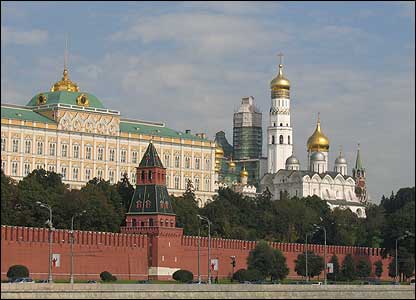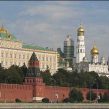
STANISLAV BELKOVSKY: PUTIN WILL LEAVE POWER COMPLETELY
Publication: Eurasia Daily Monitor Volume: 4 Issue: 215
By:

The United Russia party and the recently created “For Putin” movement continue to push for President Vladimir Putin to remain in power in some capacity after his second and final constitutionally mandated presidential term ends next year. Putin himself recently hinted that he may be thinking along similar lines, telling workers in Krasnoyarsk that if people vote for the United Russia party, whose ticket he will head in the December 2 parliamentary elections, he will have the “moral right to hold those in the [State] Duma and the Cabinet responsible for the implementation of the objectives that have been identified so far.” Putin refused “for now” to say how he would do this, but added that “various possibilities exist” (see EDM, November 16). However, one leading observer, Stanislav Belkovsky, head of the National Strategy Institute, has insisted for some time that Putin will step down as president, relinquish political power entirely, and assume a post designed simply to guarantee his personal security.
Belkovsky made his case once again on November 16, when he appeared as the main guest on Yevgeny Kiselyov’s “Vlast” program, which is simulcast on RTVi television and Ekho Moskvy radio. One reason Putin wants out, said Belkovsky, is that the economic outlook for average Russians is deteriorating: Putin, he said, has been “awfully lucky” with the economy over the last eight years, but this cannot go on forever. Indeed, food prices are increasing sharply, and this trend, according to Belkovsky, is “unstoppable” because “precisely under Putin” there has been a dramatic reduction in land under cultivation and in the raising of livestock, with the result that “the country has fallen into critical dependence on food imports.” According to economic forecasts, Belkovsky said, food prices will increase another 50-70% by next spring, meaning “that for families of moderate means, making up around half of the country’s population, expenditures for food will exceed their family budgets.”
Belkovsky also cited the situation in the North Caucasus, which, he said, “is getting out of control today… if you take the cases of Ingushetia and Dagestan.” He added: “This is a characteristic example: if Putin is such a big dictator who loves power so much, how come he hasn’t fired the unfortunate [president of Ingushetia] Murat Zyazikov, which should have been done a long time ago if any kind of reforms are to be started in Ingushetia.”
In addition, Belkovsky noted that since October 1, when Putin announced that he would head the United Russia federal candidates’ list in the December 2 State Duma elections, the pro-Kremlin party’s rating has actually dropped: indeed, polls by the state-run VTsIOM polling agency found that while support for United Russia rose from 47% in August and September to 56% by mid-October, it fell by 6 percentage points to 50% in a poll conducted November 3-4 (Moscow Times, November 12). In addition, a recent poll by the independent Levada Center found that a plurality of the respondents — 45% — either completely or somewhat opposed the idea of a special Civic Assembly (Grazhdansky Sobor), naming Putin “national leader,” as a top United Russia official has proposed (see EDM, November 12). Only 35% said they either completely or somewhat supported the initiative. According to Belkovsky, Putin’s high popularity rating – 70% – is an indicator of the “legitimacy” of the “Tsar’s throne,” not a sign of support for Putin’s policies.
In a separate interview earlier this month, Belkovsky touched on another factor that may be motivating Putin to retire from politics – a desire to enjoy the wealth Belkovsky claims Putin has amassed during his presidency. In an interview published in the German newspaper Die Welt on November 13 under the headline, “Why Putin does not in the least want to remain president” (a Russian translation of which was published by the Inopressa.ru website on November 16), Belkovsky said, “The people sitting in the Kremlin” are “direct representatives and joint owners of large-scale enterprises.” He then asserted: “Putin is also a big businessman. He controls 37% of the shares of ‘Surgutneftegaz’ [Russia’s fourth-largest oil producer], with the market value [of Putin’s putative stake] coming to $20 billion. Moreover, he controls 4.5% of the shares of ‘Gazprom’ [Russia’s natural gas monopoly]. In the company Gunvor, which sells oil, Putin has [a] 50% [stake] through his representative Gennady Timchenko. Last year, its [Gunvor’s] turnover came to $40 billion, and its profits — $8 billion.”
In his Die Welt interview, Belkovsky stated explicitly that Putin does not want to remain in power and called the current furor about a possible third presidential term “a myth and propaganda.” During his appearance on Yevgeny Kiselyov’s “Vlast” program on November 16, Belkovsky said that the movement to make Putin “national leader” is in fact little more than an effort “to give him a certain informal status which would practically guarantee him security after the elections.” Putin, said Belkovsky, “understands perfectly that just a month after he leaves the presidential post will come skeptical whispers; after three months, the ruling elite, among others, will start to curse Putin publicly; and after a year, he will wind up altogether guilty of everything.” Thus Putin needs a “protected position, but not a position of power; a position… guaranteeing him security,” Belkovsky said.
Putin will need not only a position that will protect him in Russia, said Belkovsky, but one with “international status” that will provide him with protection outside Russia. Alluding to the kind of dangers Putin could face abroad, Belkovsky referred to Baltasar Garzon, the Spanish investigating judge who issued an arrest warrant for Augusto Pinochet, and “the successors to Carla del Ponte,” the International Criminal Tribunal for the former Yugoslavia (ICTY) prosecutor who brought former Serbian President Slobodan Milosevic to trial. In an appearance on the “Vlast” program earlier this year, Belkovsky said that Putin “wants peace and security and only the position of an influential international bureaucratic can provide him with that peace and security.” Putin, he said, could become head of the International Olympic Committee (“Vlast,” RTVi television and Ekho Moskvy, April 6).




